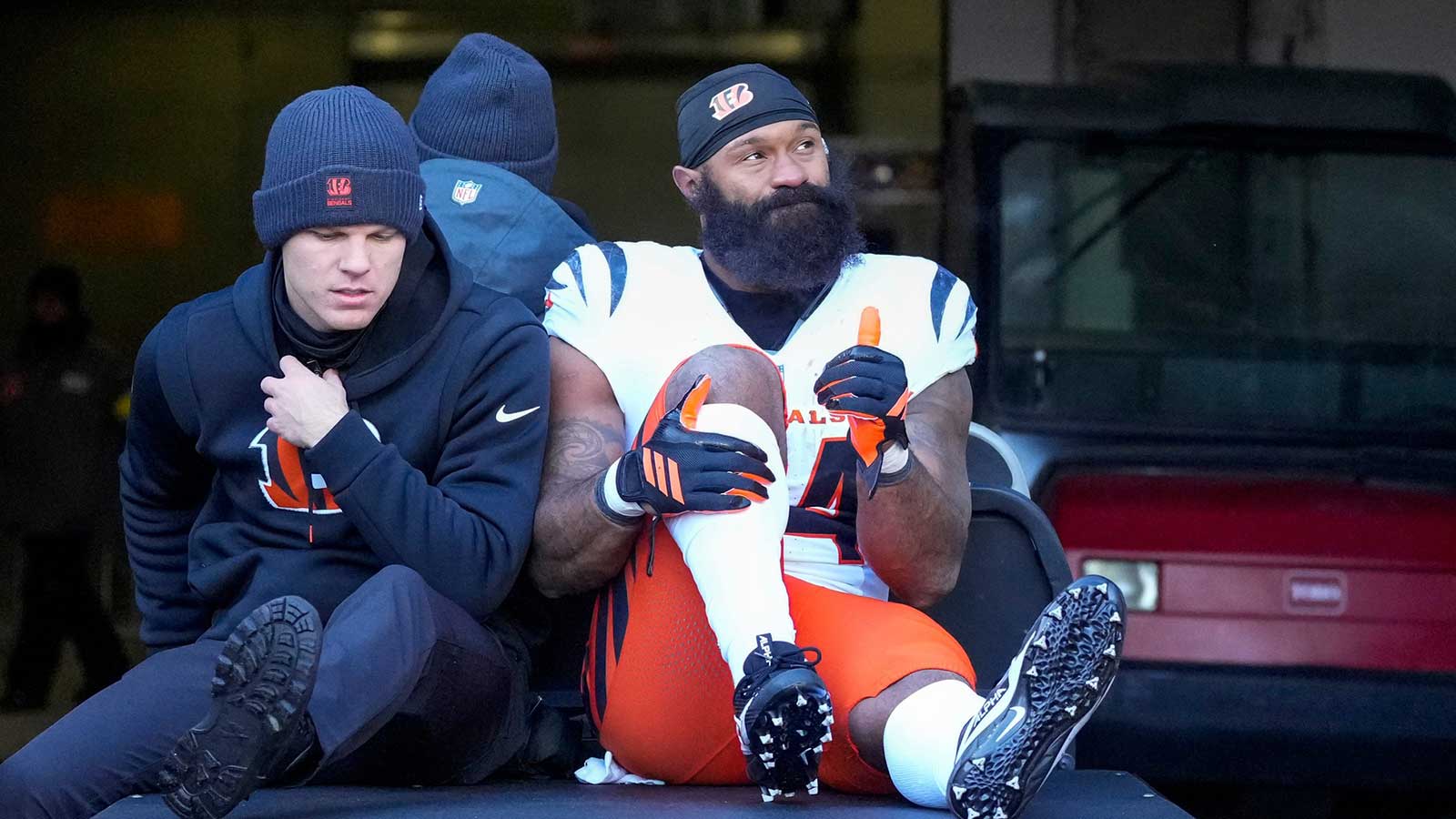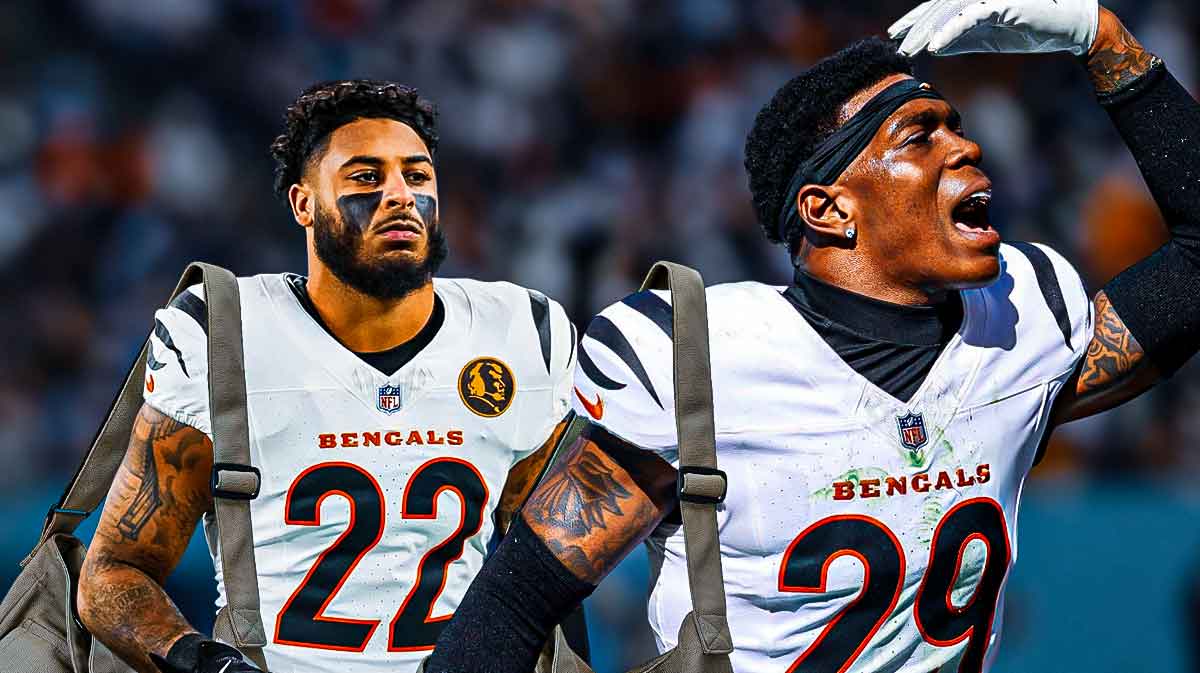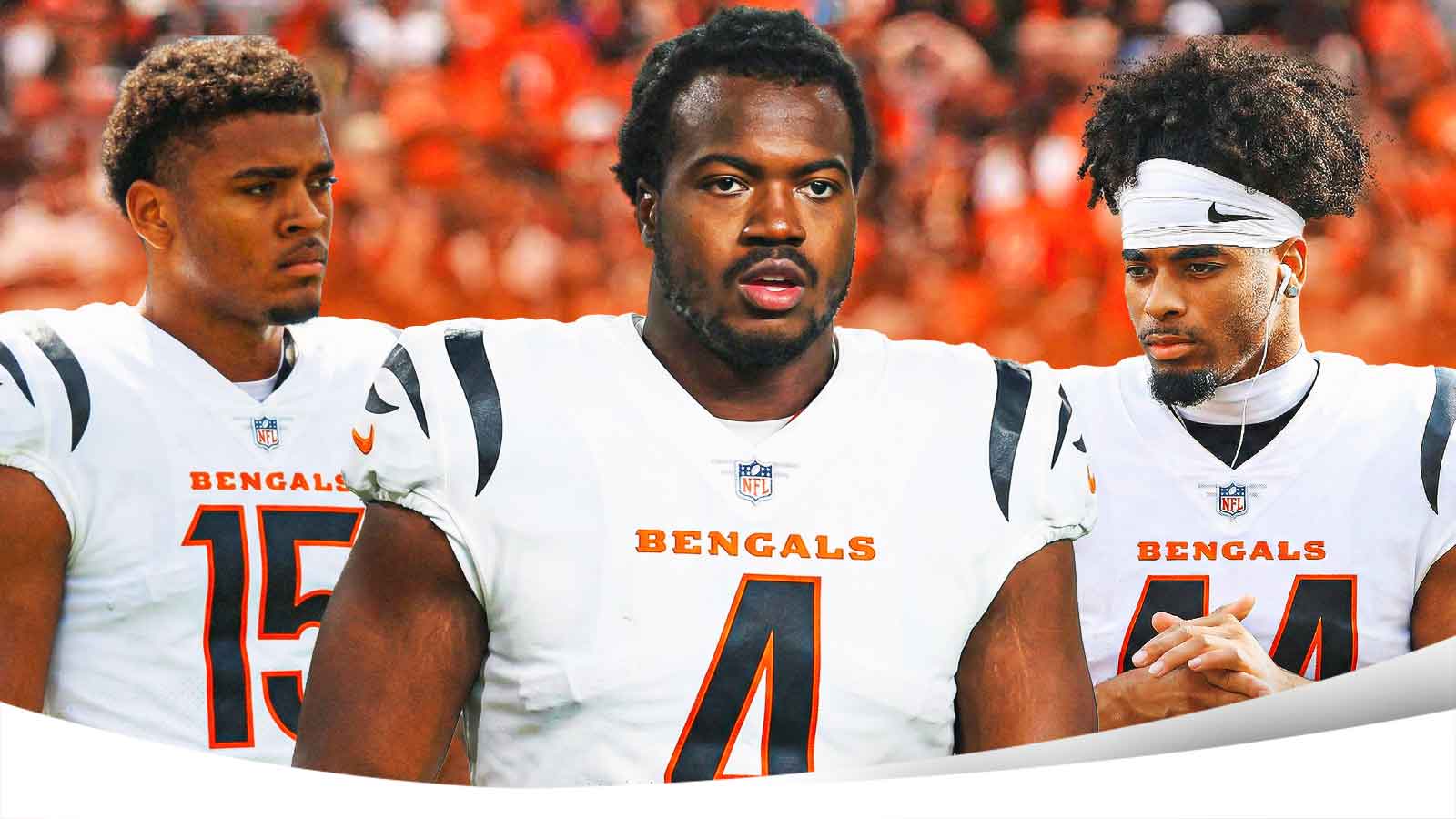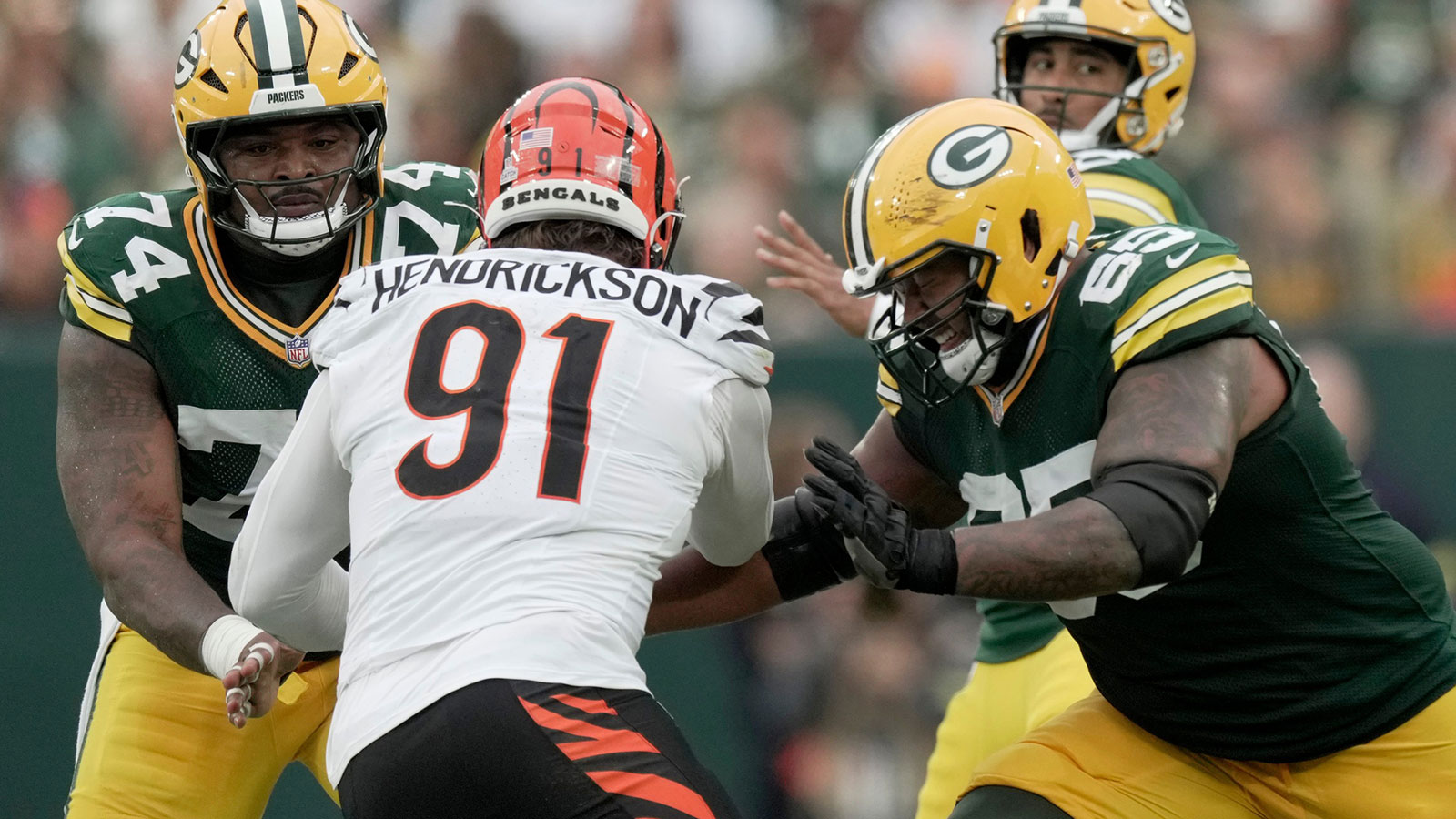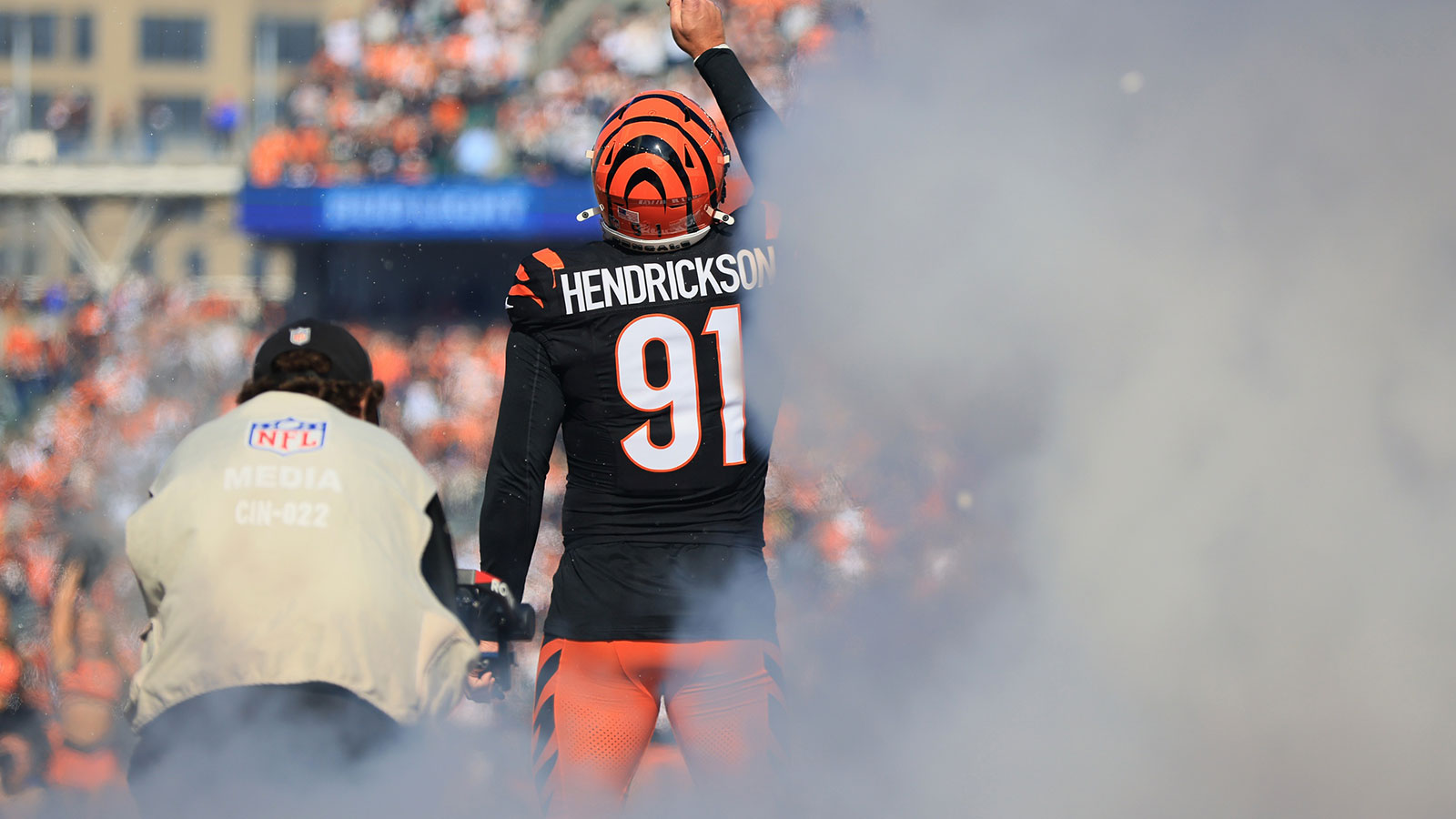The Cincinnati Bengals entered 2025 with Super Bowl aspirations and one of the NFL’s most talented rosters. In a cruel twist, though, those hopes were shaken in Week 2 when star QB Joe Burrow went down with a significant injury. Now, with the the Bengals’ championship window still wide open, Cincinnati faces a choice: ride out the storm with Jake Browning or swing for a blockbuster move that could change everything.
Burrow suffers turf toe injury
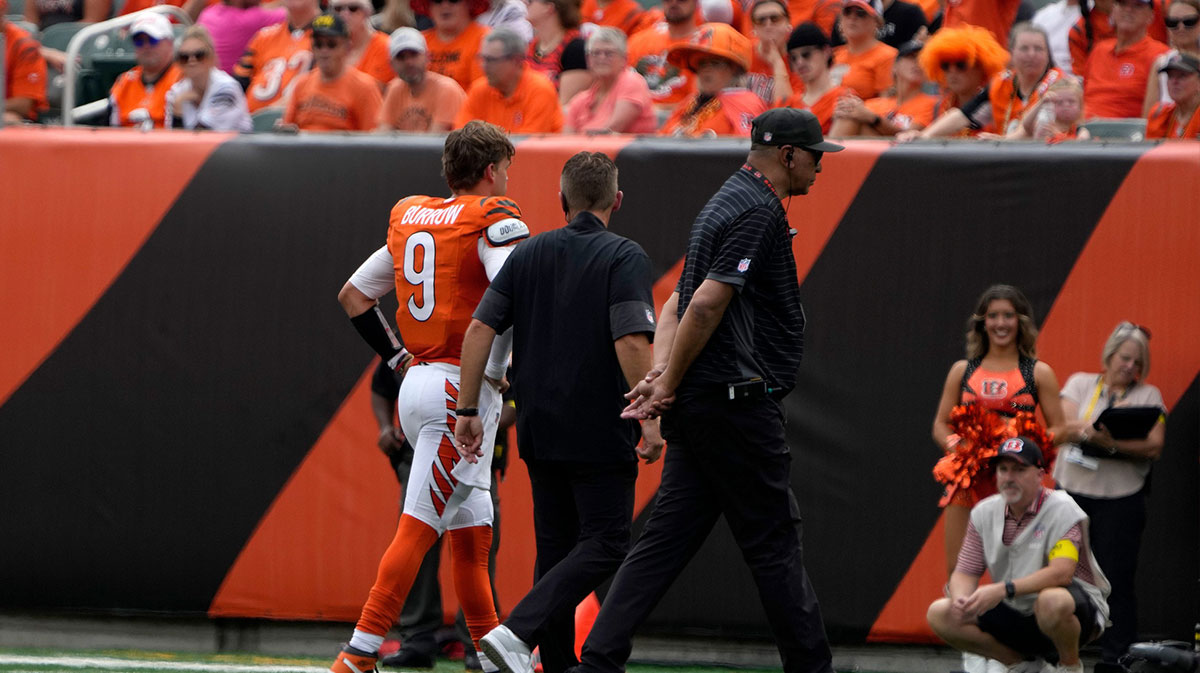
Burrow suffered a Grade 3 turf toe injury in Week 2 against the Jacksonville Jaguars after being sacked. The injury will require surgery and will sideline him for at least three months. That would obviously cost him a significant portion of the season. Recall that Burrow was helped off the field with a noticeable limp. After an on-site evaluation, he was ruled out for the remainder of the game. That was a contest the Bengals still went on to win behind backup Jake Browning.
With Burrow sidelined until at least late in the year, the Bengals now turn to Browning as their starter. He delivered a mixed outing in relief, throwing for 241 yards and two touchdowns but also tossing three interceptions. Sure, his performance was enough to secure the victory. However, it leaves lingering questions about whether Browning can carry the offense over an extended stretch.
Here we'll try to look at and discuss the Bengals' perfect Kirk Cousins trade offer to Falcons after Joe Burrow injury.
Why Kirk Cousins makes sense
Whenever a contender loses its quarterback, Kirk Cousins’ name inevitably surfaces as a possible solution. This time, though, the connection makes a lot of sense. He has built a reputation as a steady, productive passer with playoff experience. With Michael Penix Jr entrenched as the starter in Atlanta, however, Cousins is currently relegated to the backup role. That's an awkward position for a veteran of his caliber.
For Cincinnati, Cousins represents a proven short-term fix who could immediately maximize the talents of Ja’Marr Chase, Tee Higgins, and the Bengals’ dynamic receiving corps. Head coach Zac Taylor’s offensive philosophy meshes well with Cousins’ efficient, rhythm-based passing style. In fact, Cousins' system fit here seems very compelling.
The drawback, of course, is financial. Cousins is in the second year of a four-year, $180 million contract. On the flip side, Burrow is locked into his own five-year, $275 million deal. Managing both salaries would be costly. That's especially true for what might ultimately be a half-season rental. Still, if Cincinnati believes this roster is too talented to waste, Cousins could be worth the gamble.
How the Bengals could make it work
Yes, Cousins holds a no-trade clause. That said, it’s not difficult to imagine him waiving it for the chance to start on a contender like Cincinnati. Throwing to Chase and Higgins would be an enticing opportunity for a quarterback itching to play meaningful snaps again. Again, remember that Cincy employs a pass-heavy scheme that needs precision and volume. Cousins fits to a T.
Financially, the Bengals have nearly $13 million in cap space. By negotiating with Atlanta to absorb a portion of Cousins’ 2025 salary, Cincinnati could fit him into the budget. Structuring the deal to limit long-term obligations would make the move more palatable, especially since Burrow is expected to return this season.
Proposed trade components
Insiders suggest that a package of mid-round draft picks could be realistic compensation. Cincinnati could also sweeten the deal with a young depth player. That would provide Atlanta both draft capital and roster flexibility.
For the Falcons, trading Cousins would free up roughly $27.5 million in 2025 cap space. This could open up more room to build around Penix as their clear franchise quarterback. The additional draft picks would also bolster their rebuild. It ensures they get value now rather than watching Cousins’ role diminish further.
Why the Bengals are a perfect match
Cincinnati’s playoff-ready roster can’t afford to be wasted by uncertainty at quarterback. Cousins brings precisely what the Bengals need. He is a reliable passer who can operate within structure, keep turnovers low, and deliver the ball to elite playmakers. His presence would steady the offense and give the coaching staff confidence that the season isn’t slipping away.
With defenses like Baltimore, Pittsburgh, and Cleveland lurking in the division, the Bengals need stability under center more than ever. Cousins’ experience against pressure-heavy defenses aligns perfectly with what Cincinnati requires in the short term.
Why the Falcons benefit too

From Atlanta’s perspective, the move is pragmatic. Penix has already claimed the starting role, and Cousins’ hefty contract clogs their cap sheet. Trading him provides clarity, financial relief, and assets for the future. It’s a win-win: Atlanta gains flexibility and focus, while Cincinnati secures a capable leader to keep its playoff push alive.
Bottom line
The Bengals don’t have the luxury of patience. With Burrow sidelined for months, they must decide whether to trust Browning or pursue a bold solution. A trade for Cousins wouldn’t be cheap. Still, it might be exactly what Cincinnati needs to stay afloat in the AFC playoff race.
For the Falcons, it’s a chance to clear cap space, add draft capital, and move forward with Michael Penix Jr. For the Bengals, it’s a lifeline—one that could salvage a season teetering on the brink.










